We Explore How to Get Glowing Skin Naturally
What is Skin?
Skin is the largest organ of the human body, serving as a protective barrier between the internal organs and the external environment. The skin consists of several layers, with the three primary layers being:
1. Epidermis: The outermost layer of the skin, the epidermis, is responsible for forming the skin’s protective barrier. It contains various types of cells, including keratinocytes (which produce keratin, a protein that provides strength and waterproofing) and melanocytes (which produce melanin, responsible for skin color).
2. Dermis: Beneath the epidermis is the dermis, which contains blood vessels, sweat glands, hair follicles, nerve endings, and collagen and elastin fibers that give the skin its elasticity and strength.
3. Subcutaneous Tissue (Hypodermis): The subcutaneous tissue is the innermost layer and primarily consists of fat cells (adipocytes). It helps regulate body temperature and provides cushioning and insulation.
The color of an individual’s skin is determined by several factors, including the amount and type of melanin in the epidermis, genetics, and exposure to UV radiation.
Maintaining healthy skin involves proper skincare practices, such as cleansing, moisturizing, and sun protection, as well as a balanced diet, hydration, and lifestyle factors like adequate sleep and stress management. Skin health is also influenced by genetics and can be affected by various medical conditions and environmental factors.
How Can I Achieve Glowing Skin?
Achieving glowing skin involves a combination of proper skincare, a balanced diet, hydration, and a healthy lifestyle. Here are some steps to help you achieve radiant and healthy-looking skin:
1. Cleanse Your Skin: Start with a gentle, hydrating cleanser to remove dirt, makeup, and impurities from your skin. Cleansing helps maintain a clean canvas for skincare products to work effectively.

2. Exfoliate Regularly: Exfoliation removes dead skin cells that can make your skin appear dull. Use a mild exfoliant 1-2 times a week to promote skin renewal and reveal fresher, smoother skin.
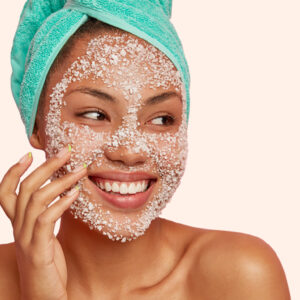
3. Moisturize Daily: Apply a suitable moisturizer for your skin type to keep it hydrated and prevent dryness. Well-hydrated skin tends to look more radiant.
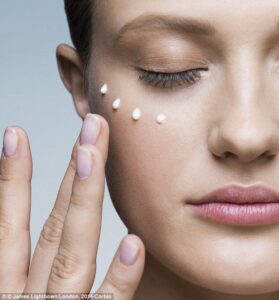
4. Use Sunscreen: Sunscreen is essential to protect your skin from harmful UV radiation, which can cause premature aging, sunspots, and damage. Choose a broad-spectrum sunscreen with at least SPF 30 and apply it daily, even on cloudy days.
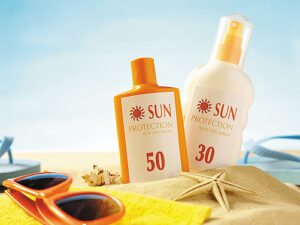
5. Stay Hydrated: Drink an adequate amount of water throughout the day to maintain skin hydration. Proper hydration helps your skin look plump and healthy.

6. Balanced Diet: Consume a diet rich in fruits, vegetables, lean proteins, and whole grains. These foods provide essential vitamins and minerals that promote skin health. Antioxidant-rich foods, like berries and leafy greens, can help combat free radicals and protect your skin.
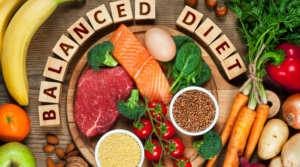
7. Vitamin C: Foods rich in vitamin C, like citrus fruits, strawberries, and bell peppers, can help brighten your skin and improve its texture.
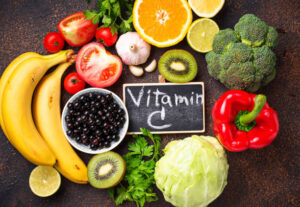
8. Manage Stress: Chronic stress can negatively affect your skin’s appearance. Practice stress management techniques like meditation, yoga, or deep breathing exercises.

9. Adequate Sleep: Aim for 7-9 hours of quality sleep per night to allow your skin time to repair and regenerate.

10. Exercise Regularly: Physical activity promotes healthy circulation, which can benefit your skin by providing it with oxygen and nutrients.

Remember that achieving glowing skin is a gradual process, and results may vary depending on individual factors like genetics and skin type. Consistency in your skincare routine and lifestyle habits is key to maintaining healthy and radiant skin over time.
How to Get Glowing Skin Through Nutrition?
You can achieve glowing skin through nutrition by making thoughtful dietary choices that provide your skin with the essential nutrients it needs. Here’s a nutrition-focused guide to help you get glowing skin:
1. Stay Hydrated: Drink an adequate amount of water throughout the day to keep your skin well-hydrated. Dehydrated skin can appear dull and lackluster. Aim for at least 8-10 glasses of water daily.
2. Eat a Balanced Diet: Consume a variety of foods that provide essential vitamins, minerals, and antioxidants. A balanced diet includes:
-
- Fruits and vegetables for vitamins (e.g., vitamin C, vitamin A) and antioxidants.
- Lean proteins like poultry, fish, and beans for amino acids necessary for collagen production.
- Whole grains for fiber and B vitamins.
- Healthy fats like avocados, nuts, and olive oil for skin hydration.
3. Omega-3 Fatty Acids: Include sources of omega-3 fatty acids in your diet, such as fatty fish (salmon, mackerel), flaxseeds, and walnuts. Omega-3s help maintain skin moisture and elasticity.
4. Antioxidant-Rich Foods: Consume foods rich in antioxidants, like berries, green tea, and dark chocolate (in moderation). Antioxidants protect your skin from free radicals and oxidative stress.
5. Vitamin C: Vitamin C is essential for collagen production and skin repair. Incorporate citrus fruits, strawberries, and bell peppers into your diet for a vitamin C boost.
6. Vitamin E: Vitamin E is an antioxidant that helps protect your skin from UV damage. Find it in foods like almonds, sunflower seeds, and spinach.
7. Beta-Carotene: Beta-carotene is a precursor to vitamin A, which supports skin health. Carrots, sweet potatoes, and pumpkin are excellent sources.
8. Zinc: Zinc is essential for skin repair and maintenance. Foods like lean meats, poultry, beans, and nuts provide zinc.
9. Hydrating Foods: Include foods with high water content, such as cucumbers, watermelon, and celery, to help keep your skin hydrated.
10. Collagen-Boosting Nutrients: Foods rich in collagen-building nutrients include vitamin C (for collagen synthesis), amino acids (found in lean proteins), and antioxidants (for protection against collagen breakdown).
11. Limit Sugar and Processed Foods: Excess sugar and processed foods can lead to inflammation and skin issues. Reduce your consumption of sugary snacks, sodas, and highly processed foods.
12. Moderate Alcohol and Caffeine: Excessive alcohol and caffeine intake can dehydrate the skin. Consume these beverages in moderation and balance them with water.
13. Practice Portion Control: Overeating can lead to weight gain, which can affect the elasticity and appearance of your skin. Practice portion control to maintain a healthy weight.
14. Minimize Dairy: Some individuals find that dairy products can exacerbate skin conditions like acne. Consider reducing or eliminating dairy from your diet if you suspect it may be affecting your skin.
15. Consult a Registered Dietitian: If you have specific skin concerns or dietary restrictions, consider consulting a registered dietitian or nutritionist who can provide personalized guidance.
Remember that achieving glowing skin through nutrition is a gradual process, and results may take time. Consistency in your dietary choices, coupled with overall lifestyle factors like sleep and stress management, can significantly contribute to the health and radiance of your skin.
Best Foods For Glowing Skin?
Eating a balanced diet that includes a variety of nutrient-rich foods can promote healthy and glowing skin. Here are some of the best foods for achieving radiant skin:
1. Fruits and Vegetables: These foods are rich in vitamins, minerals, and antioxidants that support skin health. Some of the best options include:
-
- Berries (blueberries, strawberries, raspberries)
- Citrus fruits (oranges, lemons, grapefruits)
- Leafy greens (spinach, kale, Swiss chard)
- Carrots
- Sweet potatoes
- Red and yellow bell peppers
- Tomatoes
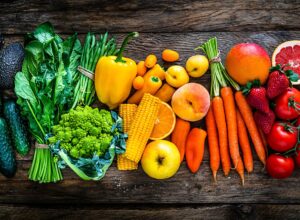
2. Nuts and Seeds: Almonds, walnuts, flaxseeds, and chia seeds are rich in healthy fats, vitamins, and minerals that support skin health.

3. Avocado: Avocado is loaded with healthy monounsaturated fats, vitamin E, and antioxidants that can promote skin hydration and elasticity.

4. Olive Oil: Extra virgin olive oil contains antioxidants and healthy fats that contribute to skin health. Use it for cooking or as a salad dressing.

5. Green Tea: Green tea is packed with antioxidants called catechins, which can help protect the skin from UV damage and improve its overall appearance.

6. Greek Yogurt: Greek yogurt is a good source of protein, probiotics, and vitamins like B12, which can help maintain healthy skin.
:max_bytes(150000):strip_icc()/GettyImages-1200111030-2000-df8d76b53f0b4284a7c38208069ab5e2.jpg)
7. Dark Chocolate (in moderation): Dark chocolate with a high cocoa content contains antioxidants called flavonols that may protect the skin from sun damage and improve skin hydration.

8. Collagen-Boosting Foods: Foods rich in collagen-building nutrients like vitamin C (found in citrus fruits, strawberries, and bell peppers) and amino acids (found in lean proteins) can support skin elasticity and repair.

9. Pumpkin Seeds: Pumpkin seeds are high in zinc, which is important for skin health. Zinc supports skin repair and helps control inflammation.

10. Red Grapes: Red grapes contain resveratrol, an antioxidant that may have anti-aging and skin-protective properties.
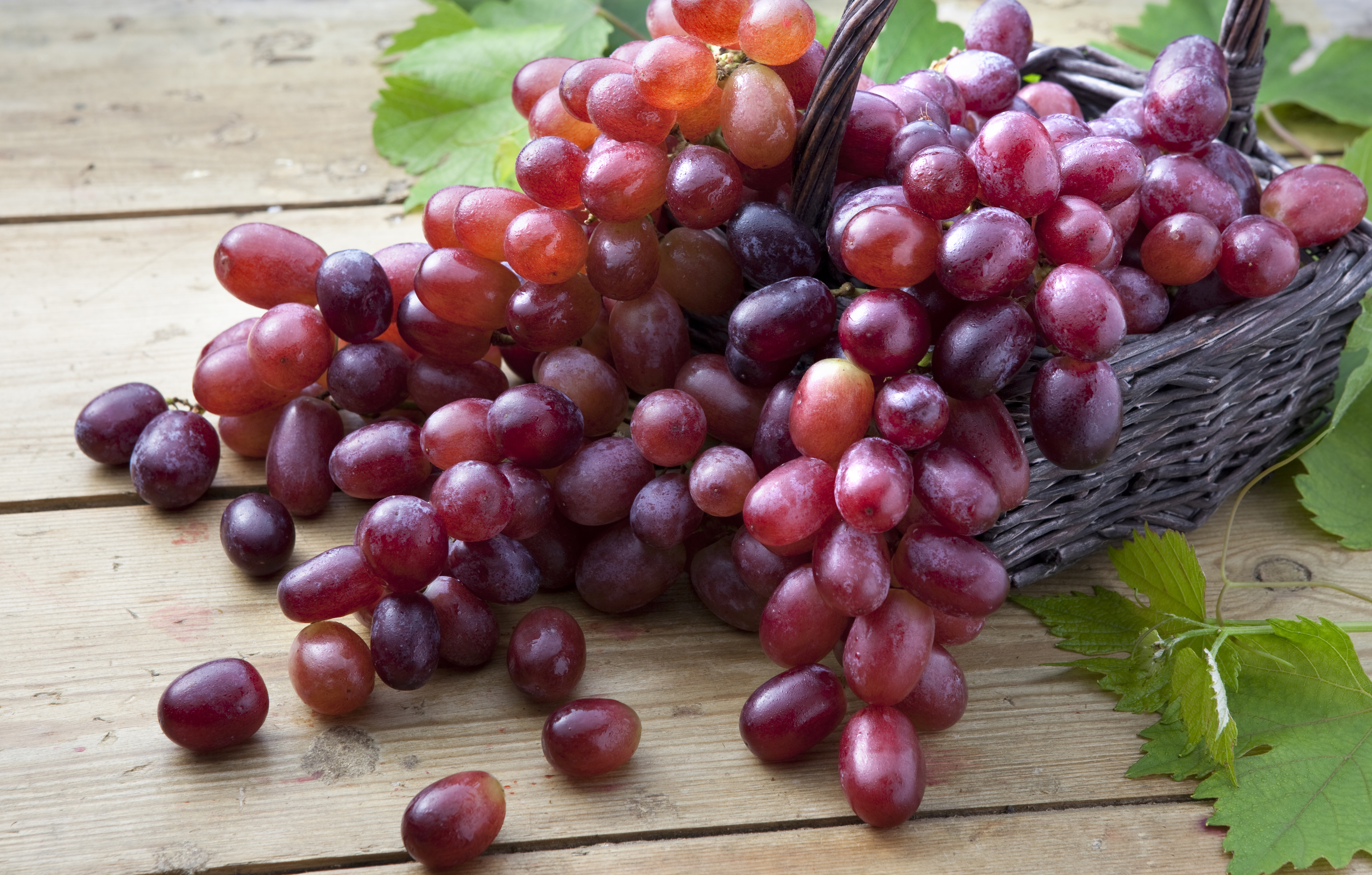
Remember that maintaining healthy and glowing skin involves a combination of a balanced diet, proper skincare, hydration, and lifestyle factors like sleep, stress management, and sun protection. Consistency in your dietary choices and overall habits is key to achieving and maintaining radiant skin.
